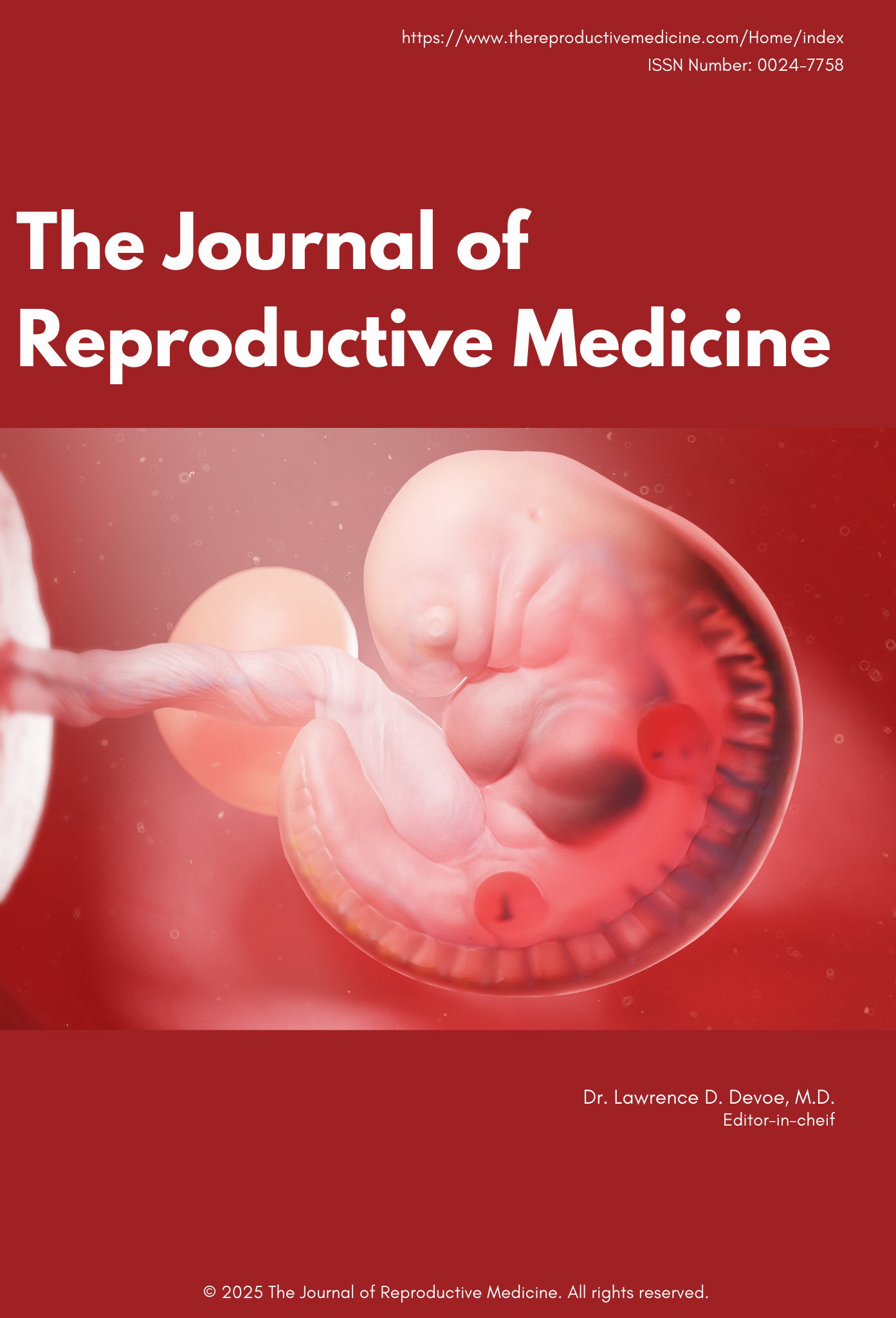Volume 51, Number 3, March 2006
| Editorial | |
| 145 | |
|
|
|
| Original Articles | |
| 147 | |
|
|
|
| 149 |
Victor Chow, MD, FRCSC, FACS, and Anthony P. Cheung, MBBS, MPH, MBA, FRANZCOG, FRCSC
Since a male factor may account for up to 50% of the underlying causes of infertility, investigation of the male with a semen analysis should precede invasive tests of the female.
|
|
|
|
| 157 |
Timothy Rowe, FRCSC, FRCOG
Those who provide care for women must be familiar with the risks associated with reproductive aging and must be comfortable in discussing them frankly with their patients.
|
|
|
|
| 164 |
Catherine Allaire, M.D.C.M., F.R.C.S.C.
The causal relationship between endometriosis and infertility remains to be elucidated, especially in early stages of the disease, when there is no disruption of the pelvic anatomy.
|
|
|
|
| 169 |
Barry Sanders, M.D., F.R.C.S.(C)
Intrauterine adhesions, uterine septa, endometrial polyps and uterine myomas appear to adversely affect fertility, but further study is necessary to demonstrate both causes and surgical benefits.
|
|
|
|
| 177 |
Victor Gomel, M.D., FRCSC, and Peter F. McComb, M.B., B.S., FRCSC
Surgery should retain its place in the treatment of tubal infertility and complements assisted reproductive technology, thereby improving outcomes for women with tubal infertility.
|
|
|
|
| 185 |
Frank F. Tu, M.D., M.P.H., Sawsan As-Sanie, M.D., M.P.H., and John F. Steege, M.D.
A cross-sectional evaluation of patients presenting to a chronic pelvic pain clinic found a significant subset with identifiable pelvic musculoskeletal pain.
|
|
|
|
| 190 |
Kimberlee T. Goode, M.D., Patrice M. Weiss, M.D., Craig Koller, M.Ed., Sharon Kimmel, Ph.D., and L. Wayne Hess, M.D.
Deliveries performed by private practitioners are associated with a higher rate of episiotomy use than are deliveries performed by resident staff.
|
|
|
|
| 193 |
Chun-Sen Hsu, M.D., Szu-Yuan Chou, M.D., So-Jung Liang, M.D., Chun-Yaw Chang, M.D., and Sung-Ling Yeh, Ph.D.
Administering glutamine at physiologic levels reduces endothelial cell intercellular cell adhesion molecule-1 expression induced by preeclamptic plasma.
|
|
|
|
| Case Reports | |
| 199 |
Brian C. Cooper, M.D., and Christine A. Murray, M.D.
A 35-year-old, healthy woman developed symptomatic hyponatremia with altered mental status 10 hours after routine diagnostic laparoscopy and hysteroscopy.
|
|
|
|
| 202 |
Arnold P. Advincula, M.D., and Jose Carlos Hernandez, M.S.I.V.
A 36-year-old woman presented with acute urinary retention secondary to a large peritoneal inclusion cyst, and laparoscopic management provided immediate relief of symptoms.
|
|
|
|
| 205 |
Laura Baecher, M.D., and William A. Grobman, M.D., M.B.A.
Three cases of uterine rupture occurred in nonlaboring women at preterm gestational ages.
|
|
|
|
| 209 |
J�zsef G�bor Jo�, M.D., Art?r Beke, M.D., Ph.D., Ern� T�th-P�l, M.D., Ph.D., Be�ta Hargitai, M.D., Zsanett Szigeti, M.D., Csaba Papp, M.D., Ph.D., and Zolt�n Papp, M.D., Ph.D., D.Sc.
As far as genetic counseling is concerned, nonmosaic trisomy 20 is much less challenging than its mosaic form since the prognosis is uniformly poor in the former.
|
|
|
|
| 213 |
Kenichiro Hiraoka, M.S., Kaori Hiraoka, B.S., Masayuki Kinutani, M.D., Ph.D., and Kazuo Kinutani, M.D., Ph.D.
Recryopreservation by vitrification of blastocysts developed from frozen embryos on day 6 could contribute to preventing wastage of supernumerary embryos in human assisted reproductive technology.
|
|
|
|
| Letters to the Editors | |
| 217 |
Laurence A. Cole, Ph.D., and Jaime M. Sutton
|
|
|
|
| 217 | |
|
|
|
| 218 |
Ken-ichi Shukunami, M.D., Koji Nishijima, M.D., Ikuko Uchinami, M.D., Yoshio Yoshida, M.D., and Fumikazu Kotsuji, M.D., Ph.D.
|
|
|
|
| Chronic Pelvic Pain in Women: Focus on Painful Bladder Syndrome/Interstitial Cystitis | |
| 225 |
Daniel R. Mishell, Jr., M.D.
|
|
|
|
| 227 |
John B. Forrest, M.D.
Once thought to be a rare condition, painful bladder syndrome/interstitial cystitis is being increasingly recognized as an important cause of chronic pelvic pain.
|
|
|
|
| 234 |
Peter K. Sand, M.D.
The primary defect may be increased permeability of the GAG layer of the bladder urothelium, which allows toxic elements to invade the bladder and cause pain and irritative voiding.
|
|
|
|
| 241 |
Robert J. Evans, M.D., and Edward J. Stanford, M.D.
If PBS/IC is diagnosed early in the disease process, it can be treated successfully in most patients.
|
|
|
|
| 253 |
Jeffrey R. Dell, M.D., and Charles W. Butrick, M.D.
Most patients who suffer from painful bladder syndrome/interstitial cystitis can now be simply and effectively treated.
|






